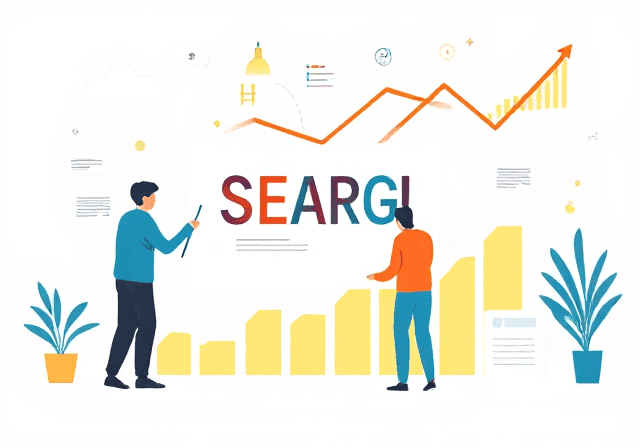Table of Contents
Introduction:

Digital marketing for trailer dealers has become a core aspect of business, and trailer dealerships are no different. As more and more buyers seek their purchasing decisions online, the potential of digital marketing for trailer dealers is significant in terms of visibility, sales, and growth. Whether you are a small dealership or a large enterprise, you need to know and apply the right strategies. This blog discusses seven proven methods to harness the power of digital marketing for trailer dealers.
1. Leverage Local SEO

Local SEO makes your dealership visible to local customers looking for trailers. You can make your Google Business Profile more impressive by adding information, quality images, and reviews from customers. You can optimize your website’s content and meta descriptions with local keywords such as “digital marketing for trailer dealers” and “trailer dealer digital marketing agency” to bring in local traffic.
Key Tips:
Use location-based keywords.
Ensure consistency in Name, Address, and Phone (NAP) across all sites.
Encourage happy customers to leave reviews on Google and on other review sites.
2. Invest in a Professional Website

The site is your own trailer dealership’s digital storefront. It must be catchy, friendly to mobile, and user-friendly. Make sure to have prominent CTAs like “Request a Quote” or “View Inventory.” Optimize the website with your focus keywords being “digital marketing for trailer dealers” and “digital marketing for trailer companies” to push it higher in search rankings.
A few Essential Features:
It loads pretty fast.
This site is easy to navigate.
There are high-quality images and videos of trailers.
Integration with other inventory management systems.
3. Embrace Social Media Marketing

Platforms like Facebook, Instagram, and LinkedIn are excellent for connecting with potential customers. Post engaging content, such as behind-the-scenes videos, customer testimonials, and promotions. Incorporate keywords like “digital marketing Zanzibar” to attract a global audience if your dealership ships internationally.
Strategies:
- Run targeted ads to reach trailer buyers.
- Use hashtags relevant to your industry.
- Engage with followers by responding to comments and messages.
4. Utilize Pay-Per-Click (PPC) Advertising

PPC campaigns on Google Ads and social media platforms ensure direct traffic to your dealership’s website. It is possible to get your ad placed at the top of search results by bidding on keywords such as “digital marketing for trailer dealers.”
Benefits
- Instant visibility
- Precise targeting, including location, demographics, and interests.
- Measurable results using analytics tools.
5. Focus on Content Marketing

Content marketing establishes trust and demonstrates your dealership as an industry expert. Develop relevant content in the forms of a blog, video, or infographic that complements your audience’s needs. For example, write blog posts on how to pick the right trailer or maintaining trailers and incorporate words like “trailer dealer digital marketing agency” and “agencyengine – full-funnel digital marketing service.”
Content Ideas
- “Top 5 Tips for Maintaining Your Trailer”
- “How to Choose the Perfect Trailer for Your Needs
- “Role of Digital Marketing in Trailers’ Sales
6. Implement Email Marketing Campaigns

Email marketing is one of the most effective ways to nurture leads and retain customers. Send newsletters with updates about new inventory, special offers, and helpful tips. Use automation tools to segment your audience based on preferences and behavior.
Tips:
- Use attention-grabbing subject lines.
- Personalize emails with the recipient’s name.
- Include CTAs to drive traffic to your website.
7. Collaborate with a Specialized Digital Marketing Agency

Partnering with experts, such as a trailer dealer digital marketing agency, will ensure saving time and resources while delivering professional results. Agencies such as AgencyEngine are experts in full-funnel digital marketing services tailored uniquely to meet the needs of trailer dealerships.
Services to Look For:
- Comprehensive SEO strategies.
- Social media management.
- PPC campaign setup and optimization.
- Analytics and performance tracking.
Conclusion

Digital marketing for trailer dealers is not a trend but a necessity in today’s competitive market. Leverage strategies like local SEO, social media marketing, and professional agency services to drive more traffic, engage your audience, and boost sales. Whether you are targeting a local or global audience, the right digital marketing techniques can position your dealership for long-term success. Take the first step today and watch your trailer dealership thrive in the digital age.
Frequently Asked Questions
Who is the father of digital marketing ?
Philip Kotler has been credited to be known as the “Father of Digital Marketing.” Traditionally, Philip Kotler is identified with contributions made to the field of marketing; however, it is through the books and lectures that he authored on digital marketing strategies that laid the modern structure for online marketing. However, a few view **Seth Godin**, the well-known marketer, to have influenced digital marketing immensely through the permission marketing concept among others. While both have made major contributions, Kotler has produced the foundational theories in marketing by which he would be regarded as the “father” in the more general sense.
Does digital marketing require coding ?
Digital marketing does not require coding for most of its core activities, including content creation, social media management, SEO, or email marketing. However, knowledge of basic coding, such as HTML or CSS, is helpful in tasks such as creating and editing landing pages, email templates, or website updates. More advanced roles, like data analysis, website development, or marketing automation, would require knowledge of coding languages like JavaScript or Python. Of course, not every digital marketer will need to code, but coding can enrich one’s skillset and further their career in this field.
How many main pillars of digital marketing ?
SEO: Improving website visibility on search engines, Content Marketing: In fact, creating valuable and engaging content to attract the audience, Social Media Marketing: Promoting a product or service using social channels, Pay-Per-Click (PPC) Advertising: Running paid ads for driving traffic to the website,Email Marketing: Communicating through emails with prospects and customers, Affiliate Marketing: Tying up with affiliates, whose mission is to promote a company’s products in return for a commission.
What is web analytics in digital marketing ?
Digital marketing web analytics refers to the collection, measurement, and analysis of data on a website for user behavior, traffic patterns, and website performance. Using tools such as Google Analytics, marketers can track metrics like page views, bounce rates, conversion rates, and traffic sources. This helps businesses optimize their online presence, improve user experience, refine marketing strategies, and increase ROI. Web analytics allows insights for decision-making and helps marketers adjust campaigns so that they could meet their set goals effectively.
What is the scope of digital marketing ?
The scope of digital marketing is broad and extending with the continuous spreading of businesses online. It includes areas such as SEO, content marketing, social media marketing, email marketing, PPC advertising, and affiliate marketing, among others. Digital marketing provides possibilities across industries to reach a global audience in business, with rising mobile usage, e-commerce, and data-driven decision-making. It allows businesses to increase brand visibility, interact with customers, increase sales, and measure performance. With the changing nature of technology, new trends such as AI, automation, and voice search further expand the scope of digital marketing, making it an essential skill for the modern marketer.
What is traffic in digital marketing ?
Traffic in digital marketing refers to visitors or users coming to a website. Online traffic can be either organic search from search engines, paid advertising, channels from social media, email campaigns, or just referrals from any other website. Traffic tracking is important as it helps businesses identify their audiences, optimize their marketing strategies, and measure campaign effectiveness. There are two main types of traffic: paid traffic, which is driven by ads, and organic traffic, which is earned through SEO efforts. More traffic usually means more chances for conversion, such as sales or sign-ups.








